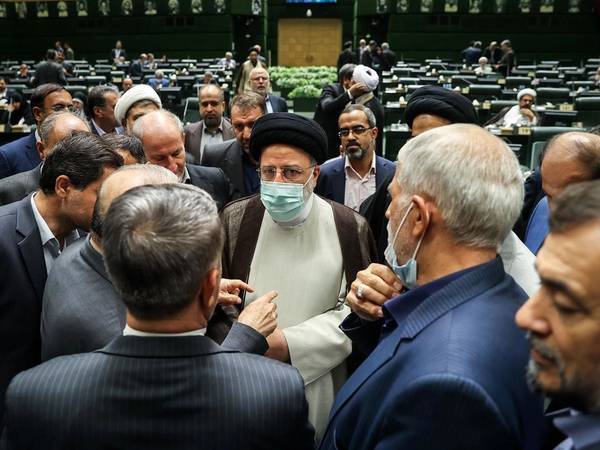A fierce conflict between Iran’s presidential administration and the Parliament Research Center has erupted, especially concerning Iran's economic woes and challenges in other sectors.
The friction has extended beyond mere disagreement, igniting the media apparatuses of the presidential administration, and intensifying the standoff.
The Parliament Research Center conducts research projects to provide expertise to parliament members and its director is appointed by the Speaker, who is currently Mohammad Bagher Ghalibaf, a conservative politician and an IRGC veteran, with family ties to Supreme Leader Ali Khamenei.
As the newly elected parliament is set to convene this month, Ghalibaf finds himself in a battle of survival as Speaker, as hardliners in control of the administration have their eyes on the prize.
The Research Center has published reports across various sectors, including the economy, which have contradicted the Iranian government's claims, especially those of Iran's current hardliner President Ebrahim Raisi.
The Center’s reports on poverty and healthcare costs have drawn the ire of government officials, sparking a contentious debate between the two powers.
In the absence of independent governmental or private research institutions in the authoritarian regime, the occasional whiff of a critical report is welcomed by government critics and relatively independent journalists and experts.
One report by the Center highlighted the inadequacy of supportive budgetary policies in alleviating poverty, while another shed light on the alarming decrease in daily calorie consumption among Iranians, falling below global standards, and the country's subpar minimum wage.
These reports came amidst the Iranian government's assertions of significant progress and improvements in economic and social indicators, which independent experts frequently challenge, accusing the government of manipulating statistics to suit its narrative of success.
Moreover, the head of the Center, Babak Naghdari, warned that "if Trump assumes the US presidency, Iran should brace for intensified sanctions pressure" causing upheaval in asset markets.
In response, Iran Newspaper, the official daily newspaper of the government of Iran criticized the Center stating that its reporting is “biased”, and that parliamentarians and critics of the government are “Trump-fearing” and that their opinions are based on fantasies. Moreover, Iran Newspaper claimed that despite international challenges, the government successfully managed to stabilize the dollar's price, attributing this achievement to its policies.
Recently, state-affiliated ILNA, went as far as running a report accusing the research outfit of deviating from its intended purpose and becoming embroiled in political agendas. ILNA questioned the credibility of the Center and claimed that it is serving as a mouthpiece for “anti-revolutionary forces”, referring to media reports of Persian language media organizations in diaspora referencing the research reports by the Center in their reporting.
In response, Khane Mellat News Agency, associated with the Iranian Parliament, responded vehemently, defending the Center's integrity and independence.
These tensions come amidst the already struggling rial, with the dollar exceeding the 700,00 rials threshold in April and the country's inflation rate, now exceeding 52%, marking an 80-year high.
